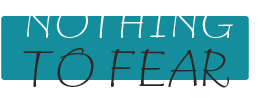
1. Let’s first take a look at the
Facts about Covid-19 →
Facts about Covid-19 →
2. DEATHS: Learn more about why
reporting of Covid-19 deaths is untrustworthy →
reporting of Covid-19 deaths is untrustworthy →
3. CASES: Find out why
there’s no Epidemic, so no ‘Pandemic’ →
there’s no Epidemic, so no ‘Pandemic’ →
4. NO CRISIS: Let’s take a closer look at what
doctors + medical experts are saying →
doctors + medical experts are saying →
5. HCQ PROVEN: So why is Hydroxychloroquine
being overlooked (or discredited)? →
being overlooked (or discredited)? →
6. RECOMMENDATIONS: Why are “guidelines” being enforced with Fines & Police Raids… →
THE STRUGGLE
Through 2020 we witnessed the unfolding of a struggle for humanity at a scale we’ve never experienced before.
On the one hand, daily reports last January about a highly contagious virus from Wuhan, China that was wreaking illness and death. An epidemic that quickly became a pandemic as countries and governments seemed surprised and unprepared to deal with a viral threat. Every day new reports and media stories about how the virus was spreading, threatening to overload our hospitals and health systems. It was impossible not to be worried about one’s own health risk, hard not to fear the toll posed to those more vulnerable than ourselves.
On the other hand, doubts and questions arose about the barrage of alarming news. Questions around the lack of reliable data and analysis, about forecasts that seemed exaggerated and far-fetched. Contradictions from health workers reporting hospitals were mostly empty and workers were being laid off (the tidal wave of illnesses not materializing outside of reports). Doctors reporting pressure to over-report covid-19 deaths, ICU workers facing patient treatment that broke protocols and were harming patients. More and more alarm bells were going off. And with it the equally alarming response to raising questions, doubts or criticisms: attack, ridicule, censorship and dismissal (or worse).
Both sides of the debate wonder in amazement about the other.
On the one hand: How does the pandemic not make sense to you? We rely on our governments and health authorities and the media to know what’s going on. Flawed though they may be, they protect us.
On the other hand: How can you believe everything so verbatim from governments that have proven repeatedly to be less than completely honest, from media that’s heavily commercialized and prone to selling us something constantly?
Virtually everyone is susceptible to Confirmation Bias: the tendency to search for, interpret, favor, and recall information in a way that confirms or supports one’s existing beliefs. This biased approach to decision making is largely unintentional and often results in ignoring inconsistent information. People also tend to interpret ambiguous evidence as supporting their existing position. This bias is influenced in a specific sense (what do I hear most within my sphere of influence, my bubble) and in a more general sense (what did I learn in the home, the community, the environment I grew up in). The former can create a sense that “most people know this”, “most people agree with me”.
Humanity has tremendous capacity for resilience – physiologically, emotionally, spiritually. Can humankind evolve into greater harmony, greater awareness, greater peace? Can we as a collective BE the love we want to see in the world?
On the other hand, doubts and questions arose about the barrage of alarming news. Questions around the lack of reliable data and analysis, about forecasts that seemed exaggerated and far-fetched. Contradictions from health workers reporting hospitals were mostly empty and workers were being laid off (the tidal wave of illnesses not materializing outside of reports). Doctors reporting pressure to over-report covid-19 deaths, ICU workers facing patient treatment that broke protocols and were harming patients. More and more alarm bells were going off. And with it the equally alarming response to raising questions, doubts or criticisms: attack, ridicule, censorship and dismissal (or worse).
Both sides of the debate wonder in amazement about the other.
On the one hand: How does the pandemic not make sense to you? We rely on our governments and health authorities and the media to know what’s going on. Flawed though they may be, they protect us.
On the other hand: How can you believe everything so verbatim from governments that have proven repeatedly to be less than completely honest, from media that’s heavily commercialized and prone to selling us something constantly?
It boils down to the question: who do I believe? And: how do I interpret what I hear?
Virtually everyone is susceptible to Confirmation Bias: the tendency to search for, interpret, favor, and recall information in a way that confirms or supports one’s existing beliefs. This biased approach to decision making is largely unintentional and often results in ignoring inconsistent information. People also tend to interpret ambiguous evidence as supporting their existing position. This bias is influenced in a specific sense (what do I hear most within my sphere of influence, my bubble) and in a more general sense (what did I learn in the home, the community, the environment I grew up in). The former can create a sense that “most people know this”, “most people agree with me”.
Hopefully…
We can embrace the most important question: how do we move through this TOGETHER?Humanity has tremendous capacity for resilience – physiologically, emotionally, spiritually. Can humankind evolve into greater harmony, greater awareness, greater peace? Can we as a collective BE the love we want to see in the world?
